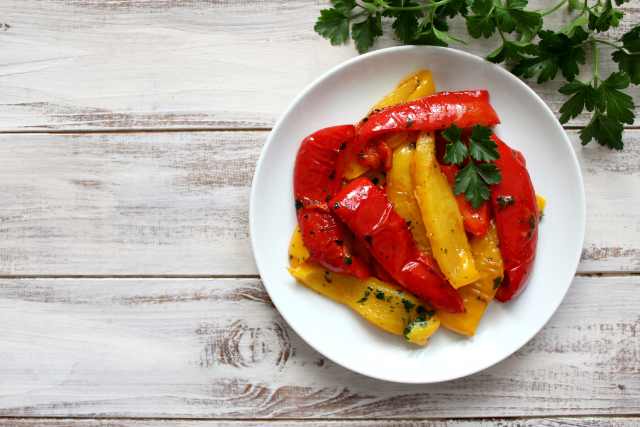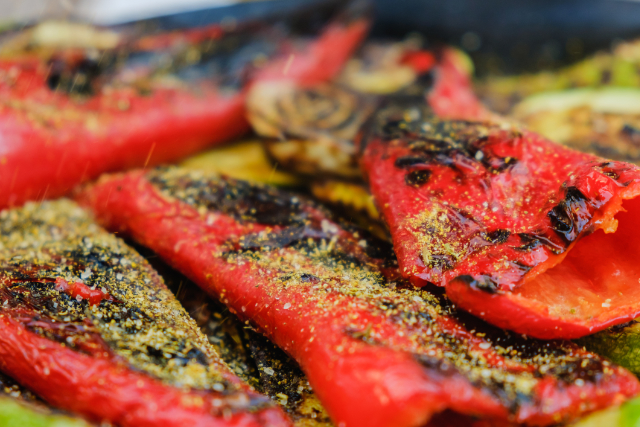How Long Can Peppers Sit Out After You Roast Them?

Cooking individual ingredients before you add them to a larger, more complex dish is how you get great flavors from a small array of ingredients — that's commercial cooking 101. Doing all of your prep work in the mornings, which includes a lot of washing, chopping, and starting to cook, can make sure you have plenty of time to extract those flavors before the orders start rolling in. While your staff knows not to leave the meat out all day, vegetables can be a little more questionable. Keep these hazards in mind as you cook throughout the day:
1. Most cooked ingredients shouldn't stay out for longer than two hours — or even just one.
Once you pull something off the heat, the clock starts ticking. Microbes can start to accumulate on the warm, moist surface. The cellular structure of things like peppers, which have a snappy skin side and a fleshy interior, will also start to break down.
2. The wrong kind of containment can make cooked vegetables mushy.
If you've ever had something interrupt you in the middle of dinner, you know how disappointing a great meal can be when you finally get back to it. Warm food can dry out, turn mushy, or turn into an amalgamation of all of its textures. There are some tricks for reheating the food or storing it just the right way in a bowl. But without specialized containers, tricky foods like roasted vegetables have a very short shelf life.
3. Everything can host bacteria and dangerous microorganisms.
We touched on this a bit earlier. But microbes are everywhere. As soon as things aren't fully contained or boiling, they're already contaminated for things floating in the air. If you have to cook them early, seal them in tight containers that simultaneously offer moisture release.
For cooking tips or the equipment to make your work easier without hacks and tricks, browse our pages at Thermodyne Foodservice Products, Inc.

Posted in: Cooking Tips & Recipes